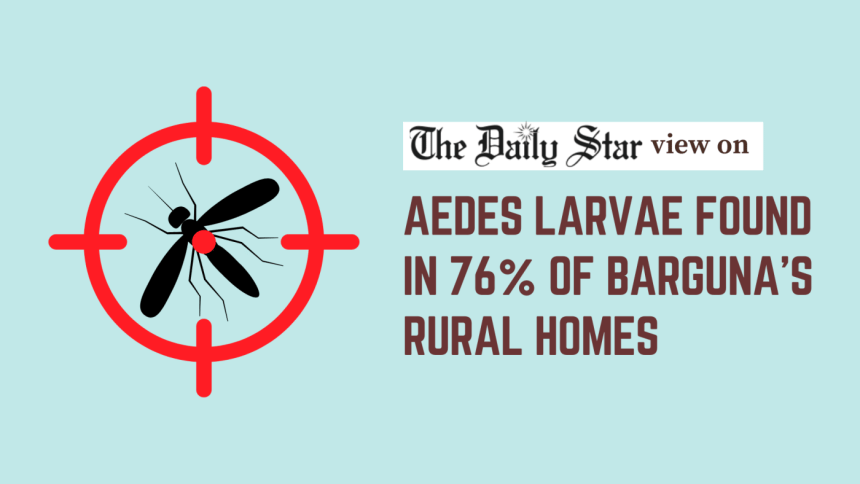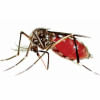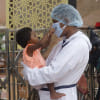Barguna's dengue crisis is exposing public health gaps

We are concerned about the dengue situation in Barguna which has emerged as the worst-hit district in Barishal and perhaps in the country. The situation there has been making headlines for quite some time, and now a survey by the Institute of Epidemiology, Disease Control, and Research (IEDCR)—conducted from June 17 to 19—has shed light on why it has become so severe. As per IEDCR, there has been an alarming level of infestation across the district, with Aedes mosquito larvae detected in 76 percent of rural homes and 31 percent of urban homes. This explains why 60 percent of all cases reported in Barishal this year came from Barguna alone. On Wednesday, the DGHS reported 326 dengue hospitalisations across the country, and 65 of them—or 20 percent—were from this one district.
Experts say the Barguna crisis could be because of several factors. In Barguna, due to its potable water crisis, it is common to store rainwater in plastic drums or earthen pots, especially in rural areas. While it is recommended not to preserve water for more than two days, people tend to do it anyway, often mixing new water with old while leaving the containers uncovered or poorly covered. Such clean but stagnant water provides ideal breeding grounds for mosquito larvae. Moreover, cleaning and sanitation drives in Barguna have also slowed since the political changeover in August, according to local activists, who have flagged poor waste management, absence of a proper sewerage system, and public apathy as key contributors to the current outbreak. The presence of a new dengue serotype (serotype-3) has not helped either.
Experts say the Barguna crisis could be because of several factors. In Barguna, due to its potable water crisis, it is common to store rainwater in plastic drums or earthen pots, especially in rural areas. While it is recommended not to preserve water for more than two days, people tend to do it anyway, often mixing new water with old while leaving the containers uncovered or poorly covered. Such clean but stagnant water provides ideal breeding grounds for mosquito larvae. Moreover, cleaning and sanitation drives in Barguna have also slowed since the political changeover in August, according to local activists, who have flagged poor waste management, absence of a proper sewerage system, and public apathy as key contributors to the current outbreak.
Unfortunately, as in many other districts and upazilas, local hospitals in Barguna lack sufficient beds, testing kits, intensive care units, and skilled manpower needed to deal with the high caseload or critical cases. Such shortages have already forced many patients to seek care in Dhaka, adding pressure on hospitals already overwhelmed by patients from nearby districts like Cumilla and Narayanganj. Health officials and experts have warned that things may worsen if outbreaks spread further into districts that lack doctors and essential equipment.
The IEDCR survey findings, therefore, should serve as a wake-up call for health authorities and local administrations across the country. Barguna needs effective, large-scale mosquito control drives and adequate treatment facilities, as do other known and emerging hotspots. If the government cannot properly respond to this crisis, things may spiral out of control as monsoon progresses.


 For all latest news, follow The Daily Star's Google News channel.
For all latest news, follow The Daily Star's Google News channel. 









Comments